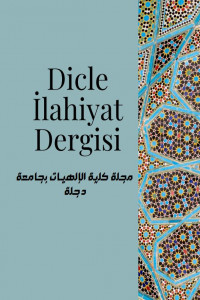BERTRAND RUSSELL’IN BİLİMSEL DİLEMMASI
İnsanoğlu var olduğu günden bugüne, gerçeğe ulaşmak için iki kaynaktan beslenmiştir. Bunlar: Vahiy ve akıldır. Vahiy, Tanrı’nın peygamberler aracılığıyla insanlara ulaştırdığı mesaj olarak kabul edilmektedir. Akıl, düşünme, anlama ve kavrama yeteneğidir. Din, genellikle doğaüstü transandandal ve ruhsal unsurlarla ilişkilendirilen bir sistem olarak ifade edilirken bilim, evrenin ya da olayların bir bölümünü ele alarak, deney ve gözleme dayanan yöntemler neticesinde oluşan sistemli bir bilgidir. Farklı şekil ve içeriklere sahip olmalarına rağmen tarih boyunca din-İlahî dinler- Tanrı merkezli kolektif bir yapıyı temsil ederken akıl daha ziyade bireyselciliği temsil etmiştir. Ancak aydınlanma dönemiyle birlikte sistematik bir yapıya kavuşan bilim, dinin karşısına daha bir özgüvenli ve daha kolektif bir yapıyla ortaya çıkmaya başlamıştır. Bertrand Russell Hıristiyan kültürü içerisinde din-bilim çatışmasının en yoğun olarak yaşandığı bir dönemde yaşamış ve kendi inanç ve düşüncelerini bu atmosfer içerisinde şekillendirmiştir. Russell, bilim insanlarının evren ve yaşama dair yaklaşımlarının dinin yaklaşımlarından daha mantıklı ve kabul edilebilir olduğunu ifade etmektedir. Bu çalışmanın amacı Russell’ın bilim anlayışının dini anlayışın yerini alıp alamayacağını irdelemektir.
Anahtar Kelimeler:
Din Felsefesi, Din-Bilim, Tasarım, Şans, Tesadüf
BERTRAND RUSSELL'S SCIENTIFIC DILEMMA
Since the day mankind has existed, it has been fed from two sources in order to reach the truth. These are: Revelation and reason. Revelation is recognized as the message that God conveyed to people through the prophets. Reason is the ability to think, understand and comprehend. Religion is usually expressed as a system associated with supernatural, transcendental and spiritual elements, while science is a systematic knowledge that is formed as a result of methods based on experiment and observation, taking into account parts of the universe or events. Although they have different shapes and contents, religion-Divine religions-has represented a God-centered collective structure throughout history, while reason has rather represented individualism. However, with the enlightenment period, science, which has acquired a systematic structure, has begun to emerge across religion with a more confident and more collective structure. Bertrand Russell lived at a time when the conflict between religion and science was most intense in Christian culture, and he shaped his own beliefs and thoughts in this atmosphere. Russell states that the approaches of scientists to the universe and life are more logical and acceptable than the approaches of religion. The aim of this study is to investigate whether Russell's understanding of science can replace religious understanding.
Keywords:
Philosophy of Religion, Religion-Science, Design, Luck and Coincidence,
___
- Kaynakça Aydın Türk. Ateizmi Anlamak. İstanbul: Propaganda Yayınları, 2012.
- Barbour, Ian G. When Science Meets Religion. New York: HarperCollins, 2000.
- Collins, Robin vd. Allah, Felsefe ve Bilim. ed. Caner Taslaman - Enis Doko. İstanbul: İstanbul Yayınevi, 2013.
- Craig, William Lane - Sinnott-Armstrong, Walter. God? A Debate Between a Christian and an Atheist. Oxford ; New York: Oxford University Press, 2004.
- Davies, P. C. W. (ed.). The New Physics. Cambridge ; New York: Cambridge University Press, 1989.
- Eddington, Sir Arthur Stanley. The Nature Of The Physical World. Cambridge: Cambridge Univ. Press, 1948.
- Fales, Evan. “Naturalism and Physicalism”. Atheism. ed. Michael Martin. New York: Cambridge University Press, 2007.
- Fallon, Francis. “If Agnosticism, Then What”. Agnosticism. ed. Francis Fallon - Hynan Gavin. Oxford: Oxford University Press, 2020.
- Huff, Peter A. Atheism and Agnosticism: Exploring the Issues. Santa Barbara, California: ABC-CLIO, 2021.
- Jimenez, Tim. All About Atheism. Place of publication not identified: World Technologies, 2014.
- Kajonen, Erkki Vesa Rope. ,Intelligent Design: A Theological and Phılosophical Analysis,. Helsınki: Helsınki University Press, 2014.
- Kocabaş, Şakir. Fizik Ve Gerçeklik: Bilim Felsefesine Kavramsal Bir Yaklaşım. İstanbul: Küre Yayınları, 2013.
- Kurşunluoğlu, M. Sait. İnsan-Evren İlişkisi ve Antropik İlke. Ankara: Elis Yayınları, 2006.
- Le Poidevin, Robin. Agnosticism: A Very Short Introduction. Oxford ; New York: Oxford University Press.
- Le Poidevin, Robin. Ateizim: İnanma, İnanmama Üzerine Bir Tartışma. çev. Abdullah Yılmaz. İstanbul: Ayrıntı, 2003.
- Newton, Isaac. The System of the World. Berkeley, Calif: University of California Press, 7. pr., 1973, 2.
- Polkinghorne John. “God and Physics”. God is great, God is good: why believing in God is reasonable and responsible. ed. William Lane Craig - Chad V. Meister. Downers Grove: IVP Books, 2009.
- Ray, Matthew Alun. Subjectivity and Irreligion. Burlington: Ashgate, 2003.
- Russell, Bernard. The History of Western Philosophy. New York: Simon and Schuster, 1945.
- Russell, Bertrand. Aylaklığa Övgü. çev. Mete Ergin. İstanbul: Cem Yayınevi, 2008.
- Russell, Bertrand. Bilimsel Bakış. çev. Funda Sezer. İstanbul: Say Yayınları, 2015.
- Russell, Bertrand. Religion& Science. London: Oxford University Press, 1974.
- Russell, Bertrand. Sorgulayan Denemeler. çev. Nermin Arık. İstanbul: Say Yayınları, 22. Basım, 2015.
- Russell, Bertrand. What I Believe. London: Routledge, 2004. http://public.ebookcentral.proquest.com/choice/publicfullrecord.aspx?p=182687
- Russell, Bertrand. Why I Am Not a Christian: And Other Essays on Religion and Related Subjects. New York: Cambridge University Press, 2005.
- Smart, J. J. C. - Haldane, John. Atheism and Theism. Malden, MA: Blackwell Pub, 2nd ed., 2003.
- Spencer, Helbert. First Principles. New York: Cambridge University Press, 2009.
- Topaloğlu, Aydın. Teizm ya da Ateizm: Tanrıtanımazlığın Felsefi Boyutları. İstanbul: Kaknüs, 2001.
- Yiğit, Fevzi. Metafizik ve Evrim. İstanbul: Önsöz Yayıncılık, 2021.
- Başlangıç: 2000
- Yayıncı: Dicle Üniversitesi
Sayıdaki Diğer Makaleler
MOLLA SADRÂ’NIN PLATONİK İDEALAR SAVUNUSU
DİYARBAKIR HALK KÜLTÜRÜNDE ÖLÜMLE İLGİLİ İNANIŞ, ADET VE PRATİKLER
HADİS EDEBİYATINDA MUSANNEF TÜRÜ ESERLER VE MUSANNEF KAVRAMININ TANIMINA AİT SORUNLAR
BERTRAND RUSSELL’IN BİLİMSEL DİLEMMASI
DİN VE EĞİTİM BAĞLAMINDA BİR DEĞER OLARAK İNSANDA GÜVEN DUYGUSU
İSLAM’DA İKTİSADIN FELSEFESİ, KAPİTALİZM VE ADAM SMITH’İN GİZLİ EL’İ
